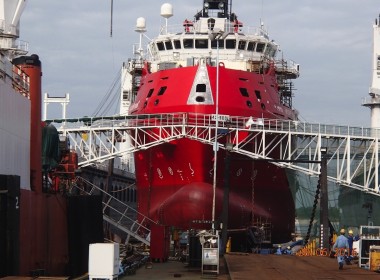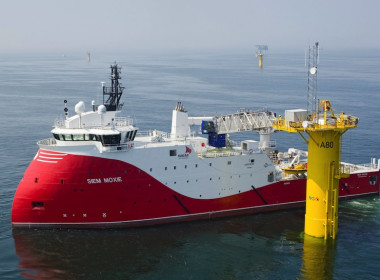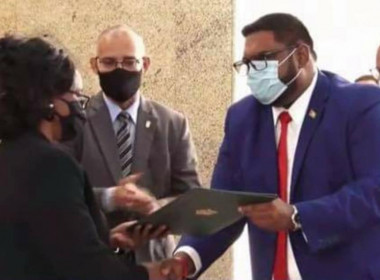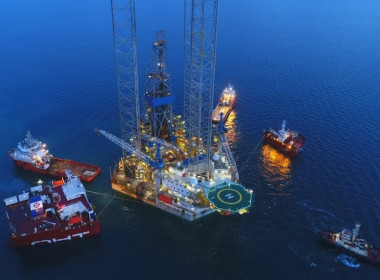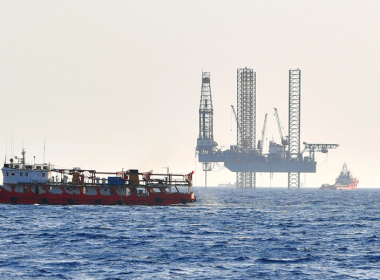COLUMN | Boardroom battles: What is John Fredriksen’s end-game at Euronav? DOF directors channel Cher whilst Capricorn Energy loses its leadership and likely NewMed Energy’s deal [Offshore Accounts]

After the shocking injustice perpetrated by the cruel and arbitrary governments of Nigeria and Equatorial Guinea on the 26 unfortunate seafarers aboard the crude oil tanker Heroic Idun, we turn our eyes this week to boardroom battles in Europe wherein some rich and powerful people either resign from their jobs or face imminent firing.
We refer, of course, to a trio of battles going on in boardrooms in Belgium, Scotland and Norway.
Euronav – John Fredriksen and Frontline versus the Saverys family
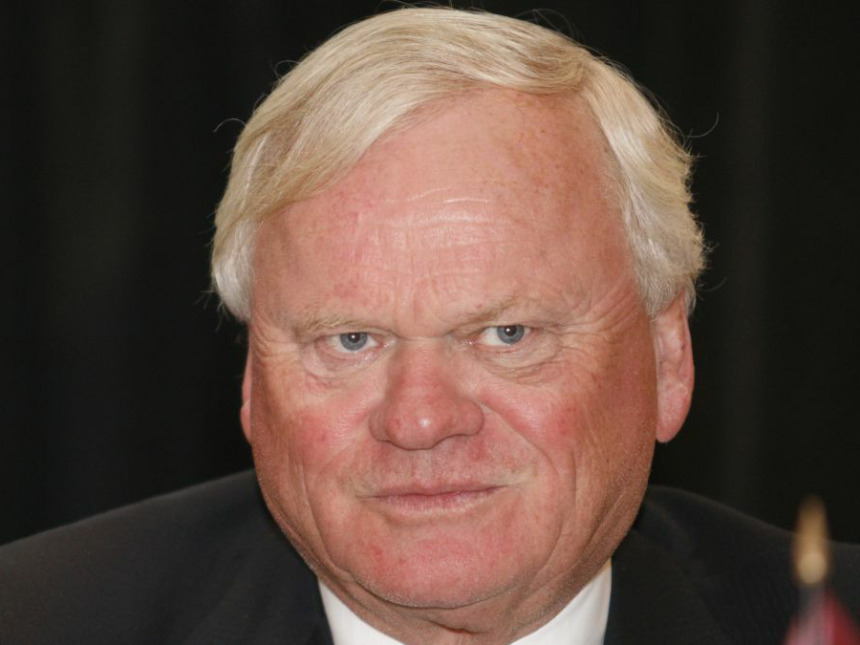
As anyone who has not been living under a rock knows, Cypriot of Norwegian descent John Fredriksen, probably the most famous and richest ship owner in the world, has been attempting to take over merge with Belgian listed tanker owner Euronav since April last year.
Fredriksen controls a swathe of publicly listed shipping companies including Flex LNG, tanker owner Frontline, Ship Finance International, and bulk carrier owner Golden Ocean, as well as fish farming businesses. He previously controlled Seadrill before that drilling company’s catastrophic double bankruptcy restructuring, but he still owns some rigs and construction vessels privately, and has a chunk of shares in listed driller Valaris.
The year 2021 was not a great one for the tanker industry, but in October 2021, Mr Fredriksen disclosed that he had bought a 5.5 per cent ownership interest in Euronav through a trust. On March 31 last year, Euronav disclosed its full year results, which showed a US$338 million loss, and a US$72 million loss for the final quarter of 2021. In 2021, Euronav’s average VLCC spot charter rate was just US$11,300 and its Suezmaxes trading spot earned just US$11,100 per day.
But every cloud has a silver lining. Specifically, a loss-making business and weak spot rates mean depressed share prices, and cheap tankers for “Big John”.
The merger plan: two become one
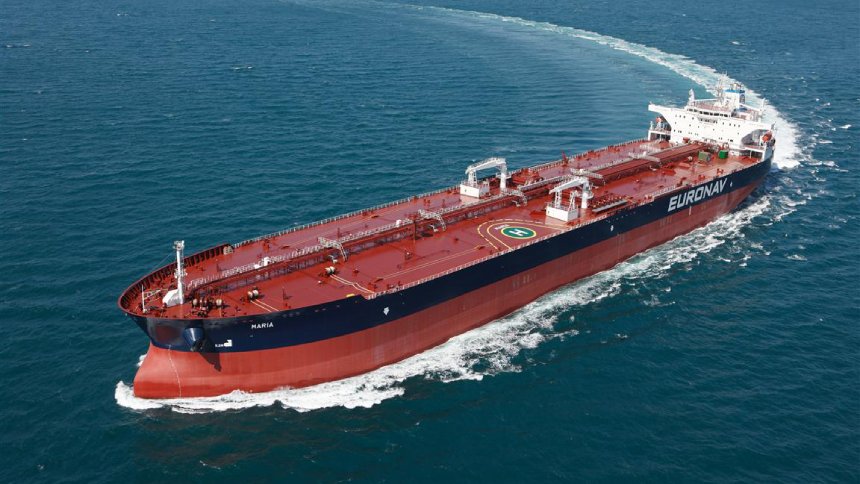
A week later, on April 7, Euronav announced that a plan to merge the company with Mr Fredriksen’s Frontline had been unanimously approved by the independent members of Frontline’s Board of Directors and by Euronav’s Supervisory Board. The deal was based on a stock-for-stock combination that would result in Euronav shareholders owning approximately 59 per cent of the combined entity, which would be called Frontline, whilst Frontline’s shareholders, headed by Mr Fredriksen, would own 41 per cent.
Cleverly, Mr Fredriksen and Euronav agreed that the combined group would be headed by Mr Hugo De Stoop, the current Chief Executive Officer of Euronav, and that the new board would include three current independent Euronav Supervisory Board members, two directors nominated by Fredriksen’s Hemen Holding, and two additional new independent directors.
The deal seemed a perfect consolidation play, which would unit Frontline’s fleet of 22 VLCCs, 27 Suezmaxes and 18 Aframax tankers with Euronav’s 38 owned VLCCs, 25 Suezmaxes, and two large offshore floating storage units working in Qatar.
Note that all this is happening at a time when the tanker orderbook is at a historic low.
Not so fast… no acquisition by Vikings, please!
Unfortunately, one party vehemently disagreed with the idea: the Saverys family, the owners of LNG company Exmar, and who had owned shares in Euronav since 1997.
The arrival of Mr Fredriksen on the share register had already set alarm bells ringing for the family. The brothers Michael, Ludovic and Alexander Saverys spent more than US$176 million up until April 4 increasing their stake in Euronav to over 13 per cent. In May Euronav shareholders had rejected CMB’s proposal to nominate three supervisory board members at its annual general meeting. However, undaunted, the Saverys family continued to increase their stake in the company to block the deal, and continued to vociferously denounce the merger. ““This is not a merger, but an acquisition by Vikings,” said Alexander Saverys.
Not Bob the Builder, CMB the Stake Builder
Even as Euronav and Frontline announced that the deal had become definitive in July, the Saverys family built up more and more stock in the company, at the same time that Mr Fredriksen added to his own stake in the company.
By the end of July, the Saverys family’s Compagnie Maritime Belge (CMB) was still the largest shareholder in Euronav, with a 19.6 per cent stake against Fredriksen’s 18.8 per cent shareholding.
However, December 13 marked a milestone. CMB had managed to acquire 25 per cent of the voting rights in Euronav, constituting a large enough stake to block the merger under Belgium law. This means that even if the deal proceeded, Euronav would still remain a separate legal entity with its own listing on both Euronext Brussels and the New York Stock Exchange.
On January 9, Frontline seemed to fly the white flag of surrender, announcing that is “has terminated the combination agreement it entered into with Euronav.”
But on Friday, there came a twist! It emerged that Fredriksen had spent another US$74 million on Euronav shares so that he was now the joint-biggest shareholder with a stake of 25 per cent, like the Saverys family.
So, what happens now?
The past is no guide to future success, but…
Writing a weekly column is a humbling experience. When you mess up, the evidence is there online for all to read for a long time. “Prediction is very difficult, especially if it’s about the future!” as the physicist Niels Bohr put it.
One of the best ways to make predictions is to look at what happened in the past to see if this is relevant to what may happen in the future. Will this approach work to predict the outcome of the battle for Euronav? Time will tell…
Tradewinds and other industry publications have been quick to point out that John Fredriksen’s record of consolidation has been poor in the last two decades, with four failed bids before he ran against Euronav last year: General Maritime in 2008, the Overseas Ship Holding Group in 2008, and the DHT Group and Gener8 Maritime in 2017.
The failed bid on OSG – one of the most arrogant and complacent companies in the entire tanker space, a segment where the egos are as big as the ships – began with a moment that is shipping legend. Joe Brady describes it adequately.
“One night in March 2008, Fredriksen made a rare trip to Connecticut to be installed as the Connecticut Maritime Association’s ‘Commodore’ – a sort of shipping Hall of Fame. He was seated at the ballroom dais of the Stamford Hilton Hotel next to OSG chief executive Morten Arntzen, the outgoing Commodore. By tradition, it would be Arntzen’s role to introduce Fredriksen and place the ceremonial tricorne hat on his head. But Fredriksen turned the whole evening on its ear when he leaned over to Arntzen and whispered that he had just acquired 10 per cent of OSG.”
However, thwarted by the Jones Act and its cabotage restrictions, Fredriksen failed to break up OSG and eventually sold his stake for a US$20 million loss in 2011.
Ouch.
The dealmaker’s backstory
His tanker failures over the last two decades were all the more surprising, because Mr Fredriksen had formed Frontline on the back of audacious and bold deals. He first snapped up London and Overseas Freighters in 1997, Cambridge Partners in 1998, and Golden Ocean in 2000 through a nifty acquisition of its distressed debt in bankruptcy. He is as famous for his big, bold deals as for his support to the Iranian regime of the Ayatollahs in the 1980s.
But the most relevant case for the Euronav situation is the efforts Frontline made between 1997 and 1999 to take over for the Swedish tanker company ICB Shipping, which owned a fleet of six Suezmaxes and six VLCCs. Fredriksen struck early and hard. Frontline was able to buy 51 per cent of ICB’s shares, but due to a dual-share structure, it was only able to amass 31 per cent of the votes.
Two years of hostile takeover battles ensued. ICB found a white knight and sold a controlling interest to Greek owner John Angelicoussis. Fredriksen made regulatory threats and issued legal challenges against the ICB board. He even printed adverts in the Swedish press advocating the take-over. He eventually succeeded.
Fredriksen demonstrated aggression, boldness, and persistence, as press coverage from the time shows.
Dig in and prepare for a long fight
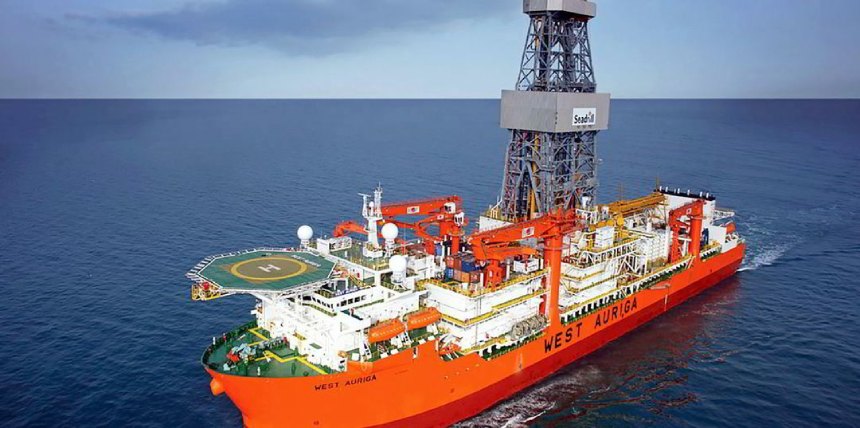
The Saverys family need to be prepared for a long battle. Those who think that Mr Fredriksen has not won a take-over battle in two decades weren’t watching his achievements in Seadrill, where he began by adding Mosvold Drilling to his scalps in 2003.
Fredriksen’s Seadrill managed to outsmart American driller Noble, which had secured a 30 per cent stake in Norwegian driller Smedvig by buying the founding Smedvig family’s shares in late 2003. Noble’s position appeared unassailable. However, Seadrill was able to dive in and take control of the company by making a generous offer in late December 2003, playing up its local hero credentials, whilst Noble’s esteemed board floundered and blathered about their return on investment. By early 2004, Seadrill had snatched control of the company, and Noble was forced to sell, handing another wad of cash back to the savvy Smedvig family as it left.
Further bruising battles ensued over Eastern Drilling in 2006 and 2007, which resulted in Seadrill being fined by the Norwegian securities regulator, but it still prevailed. By 2008, Seadrill had acquired a 40 per cent stake in jack-up owner Scorpion Drilling. In 2010, Fredriksen made his move and outbid American Driller Ensco for the company and its newbuild fleet of drilling rigs. In 2012, Seadrill manoeuvred itself into a majority stake in Sevan Drilling.
So even if the Saverys family had acquired a quarter of Euronav, Fredriksen also has a quarter, despite his feint in early January. Half the company is in play. The small orderbook for tankers makes consolidation very attractive, even if VLCC and Suezmax rates are not especially exciting today.
Euronav’s board has rushed to emergency arbitration according to a press release on January 18, claiming that Frontline couldn’t unilaterally walk away from the deal. One can almost sense the desperation of Euronav CEO Hugo De Stoop – if Euronav remains independent, he now faces the wrath of the Saverys family for advocating a merger that they have opposed since day one. And if there’s no merger, there’s no big job for him running the combined entity.
Quite what the arbitration will achieve is not clear. So, pull out some popcorn and enjoy. This battle could run for another year if it follows the duration of the Eastern Drilling, Scorpion, and ICB take-overs.
Of course, the board at Euronav are not the only directors facing travails this month.
DOF’s rebels retreat
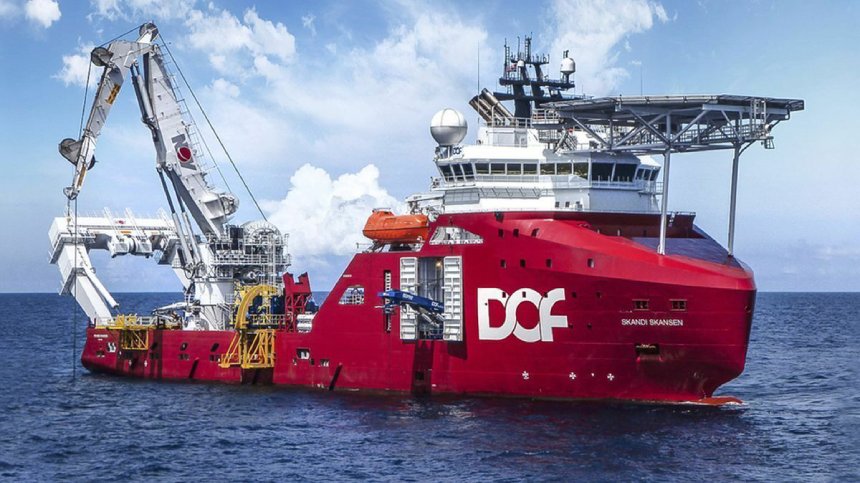
DOF, the Norwegian owner of around fifty high end offshore support vessels (OSVs), has been effectively bankrupt for several years, unable to service its debts or reach a restructuring, despite agreement between the main shareholder, Møgster Offshore, which controls 31.6 per cent of the company, and the banks and bondholders, who are owed over US$2 billion (here).
In November, Bjarte Brønmo and Georg Wilhelm Bjørnestad, who hold around 11 per cent of shares in the beleaguered company, led a revolt against an agreed restructuring plan that would see the existing shareholders reduced to holding just four per cent of the company, as long suffering lenders and bondholders took over the other 96 per cent. At an extraordinary general meeting on November 11, 2022, the “rebels” successfully led the shareholders to reject the proposal. In theory, this meant that the shareholders would then get only one per cent in a court-enforced restructuring.
Brønmo and Bjørnestad then seized control of the company in December in a surprising vote to replace the DOF board of directors. They appointed four directors of their own, including new chairman Leif Salomonsen. They claimed that the proposed restructuring with creditors – a move that would swap the debt for shares in the company – was unfair to the existing shareholders, and that they had only a short time to save the company by negotiating a better deal.
At the time, I warned that “the rebels still face an uphill struggle.” And so it has proved.
Last week, Bjarte Brøndmo, on his own initiative, according to the press release, resigned as a board member of the company.
Same, same, but worse?
On Friday, DOF announced that it has decided to submit a proposal for a new restructuring plan to the creditors and that it will hold another extraordinary general meeting to consider this proposal.
The plan has already received support from Møgster Offshore, which owns approximately 31.6 per cent of the shares in DOF, just as the last one did. In fact, it is very similar to the last one, save for one small tweak.
The board’s new proposal means that the existing shareholders will own 3.75 per cent of a strengthened DOF after debt conversion. The company will continue its operations.
The directors point out that the new 2023 restructuring proposal is based on the restructuring agreement that was negotiated between the company and the creditors, which was voted down at the extraordinary general meeting in November last year. The original proposal in 2022 would have meant that shareholders would own four per cent of the shares in the company. After this proposal was defeated by the rebels, it was likely that the shareholders would end up with a one per cent stake, unless the rebels could compel the creditors to accept a better deal.
The proposal that the board has now submitted means that the existing shareholders will own 3.75 per cent of the company’s shares after debt conversion. The proposal is otherwise identical to the previous proposal.
So, the rebels have achieved the great result of wasting two more months, spending thousands on lawyers and advisers, and achieving no positive outcome, save that they and the other shareholders lose another 0.25 per cent of the company.
If I could turn back time
DOF’s chairman, Leif Salomonsen channeled Cher, singer of If I Could Turn Back Time, in the DOF press release:
“The board would have liked to see the shareholders retain a larger share of the company than the reconstruction suggests. If it had been possible to turn back the clock and restart negotiations with the creditors today, this might have been possible. However, it is a fact that the DOF Group has approximately NOK25 billion (US$2.5 billion) in debt on which, for the most part, neither interest nor instalments have been paid for more than two years…”
I was waiting for him to conclude that he didn’t really mean to hurt the creditors, he didn’t want to see the original restructuring plan go, and he knew he made them cry, but if he could turn back time, if he could find a way….
Mr Brønmo and Mr Bjørnestad, we salute you. It’s not even a Pyrrhic victory; it’s a Pyrrhic defeat.
Capricorn falling
In astrology, Capricorn is the star sign of the stubborn and work-obsessed. Capricorn Energy, on the other hand, is the former Cairn Energy, an Edinburgh-headquartered, British-listed oil and gas explorer with a serious strategy problem.
Last week, Capricorn’s chief executive, its chairwoman, and five other directors announced they were quitting after a battle with activist investor Palliser Capital over whether to sell the company to Israel’s NewMed Energy. Palliser owns seven per cent of Cairn and wants Cairn to pay out most of its US$760 million cash as a special dividend and not to merge the company. Palliser argued that NewMed was paying too little for Capricorn. The activist has proven more stubborn than Capricorn’s board.
The Financial Times reported that Capricorn’s chairwoman Nicoletta Giadrossi and its CEO Simon Thomson, who has held the post for more than 10 years, were departing the board with immediate effect last week along with three other directors. The other two directors, including chief financial officer James Smith, were slated to be out before the end of the day on Tuesday, January 31. Only two of the original lineup of directors remain.
DOF has a clear path out of its difficulties. It just needs its shareholders to agree. At Capricorn, the shareholders are angry, but there is now no clear way forward for the company after this mass resignation.
Tullow ditched and now NewMed shelved too?
After its successful tax case against the Indian government and the lucrative sale of its stake in Senegal’s Sangomar oilfield, Capricorn faced an embarrassment of riches – the Indian government was due to pay it one billion US dollars, and the cash was very attractive to both shareholders and other oil companies – much more attractive, in fact, than Capricorn’s ongoing field developments in Mexico and Egypt, and its portfolio of exploration licenses in Suriname, Mauritania and the Mediterranean.
On June 1 last year, Tullow Oil, a notoriously indebted and unsuccessful explorer also listed in London, announced that it had reached an agreement to merge with Capricorn in an all-stock deal worth US$827 million. For Tullow, this gave it access to much needed liquidity (a.k.a. cold, hard cash) and diversification away from its profitable but mature offshore producing fields in Ghana, Jubilee, and TEN.
Capricorn’s shareholders, headed by Palliser, were not happy, however – there seemed to be a lot of benefits for Tullow, but few for Capricorn. Faced with a revolt, Capricorn CEO Simon Thomson then found a new and better suitor, he hoped. In September, Capricorn announced that it had scrapped its merger with Tullow in favour of a deal with Israeli natural gas group NewMed Energy.
NewMed deal worked… for NewMed
NewMed, which holds a 45.3 per cent working interest in the vast Leviathan gas field in Israeli waters, offered an all-share deal that would leave Capricorn shareholders with around 10 per cent of the combined company and NewMed’s current unit holders and partners holding the balance. The deal would give NewMed an easy London listing and more exposure outside Israel, as well as to Capricorn’s geologists and drilling teams.
As a sweetener, Capricorn shareholders would receive a cash special dividend, estimated to be US$620 million, prior to the merger. The MedMed deal valued Capricorn at 271 pence (US$3.34) per share, a premium of 36 per cent to its closing price on May 31, the last business day before the Tullow merger announcement.
Unfortunately, with the board walking out en masse and Palliser’s nominations likely to be running the show, the chances of Capricorn’s deal with NewMed going through seem low. The deal will be voted upon on February 22, but the new board opposes it, and the resignation of the CEO and the chair suggest that they knew they would lose the vote.
Dog bites car; so what?
What happens now is unclear. Rather like Mr Brønmo and Mr Bjørnestad at DOF, it seems that Palliser has plenty of things it doesn’t like at Capricorn but it has no clear plan of action to provide a better long-term alternative.
Rather like the proverbial dog chasing a car, Capricorn’s activist investors appear uncertain what to do when they actually bite into the vehicle’s bumper and get what they want.
With Mr Thomson and Ms Giadrossi out of the door, what will Palliser do to radically transform the company? It is one thing being a carping critic on the sidelines and quite another setting a strategy for an oil company as demoralised as Capricorn now is, with its leadership gone and its future uncertain.
DOF, Euronav, and Capricorn all face tough decisions in the next couple of weeks. Directors are highly paid. At all three companies, they will certainly earn their fees as they address difficult questions about future strategy, and their own fiduciary duty to all shareholders, not just the most vocal.
Background reading
GCaptain’s John Fredriksen: The Man, The Myth, the Legend from 2012 remains a good starting point for the life and achievement of our protagonist.
History of Frontline here.
Our past coverage of DOF is here and of Capricorn Energy is here.


